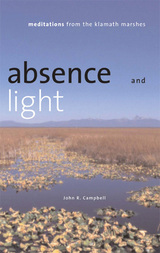
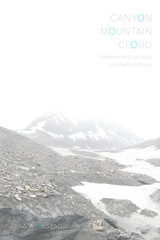
Part memoir and part scholarly analysis of the psychological and societal dimensions of place-creation, Canyon, Mountain, Cloud details the author’s experiences working and living in Black Canyon of the Gunnison National Park, Denali National Park and Preserve, Adirondack State Park, and arctic Alaska. Along the way, Olstad explores canyons, climbs mountains, watches clouds, rafts rivers, searches for fossils, and protects rare and fragile vegetation. She learns and shares local natural and cultural histories, questions perceptions of “wilderness,” deepens her appreciation for wildness, and reshapes her understanding of self and self-in-place.
Anyone who has ever felt appreciation for wild places and who wants to think more deeply about individual and societal relationships with American parks and protected areas will find humor, fear, provocation, wonder, awe, and, above all, inspiration in these pages.
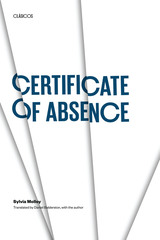
Originally published in 1981 as En breve cárcel,Certificate of Absence is the first novel of the Argentinian scholar-critic Sylvia Molloy. Innovative in its treatment of women's relationships and in its assertion of woman's right to author her own text, the novel has won wide approval in Latin America and the United States.
The novel centers around a woman writing in a small room. As she writes, remembering a past relationship and anticipating a future one, the room becomes a repository for nostalgia, violence, and desire, a space in which writing and remembering become life-sustaining ceremonies. The narrator reflects on the power of love to both shelter and destroy. She meditates on the act of writing, specifically on writing as a woman, in a voice that goes against the grain of established, canonical voices.
Latin American male writers are prone to self-portrayal in their texts. Certifcate of Absence is one of the few novels by Latin American women that successfully use this technique to open new windows on women's experiences.
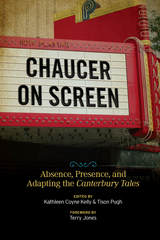
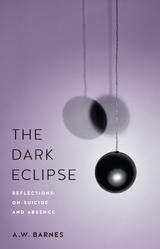
Published by Bucknell University Press. Distributed worldwide by Rutgers University Press.
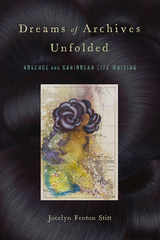
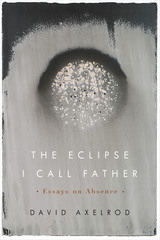
The essays in this collection grew from a ten-year period when the author found himself periodically living and working abroad, wondering why foreign landscapes haunted him more than the familiar landscapes of the inland Pacific Northwest he called home. Each place had a long history of habitation, but at home he was blind, unable to see past the surfaces of things. Axelrod examines many aspects of that phenomenon in these pages, framing surface realities and imagining the scale and scope of that surface, but also trying to sense what is absent or changed, and how, despite its absence, the unseen accretes to ever-greater densities and persists as something uncanny.
Curious, alert, and keenly observant, these essays probe the boundaries between what is here and what is gone, what is present and what is past, in elegant prose. Readers familiar with Axelrod’s poetry will find a new facet of his lyrical gifts, while those encountering his work for the first time will be richly rewarded by the discovery of this Northwest literary talent.

In the fascinating collection of poems, In the Absence of Clocks, poet Jacob Shores-Arguello takes readers on an illuminating voyage through Ukrainian life. Set during the turmoil of the 2004 Orange Revolution, when the country trembled in the wake of political corruption and public outrage, Shores-Arguello’s lyrics of a revolution provide a glimpse into a world at once foreign and familiar.
Throughout the collection are the iconic images and myriad juxtapositions of Ukrainian life. wolves howling in the snow and bakers pounding early-morning loaves of bread; farmlands and cities alike rocked by political transformation; gypsies and protesters; opulent images of Byzantium and the concrete ghosts of Chernobyl—all meet here at the crossroads of East and West, democracy and communism, reality and mythology. As the narrator travels across the Ukraine, he does much more than cross the distances between Horlivka and Odessa or Kiev and the Black Sea. As the tides of change swirl around him, they mirror his own search for a cultural identity and history.
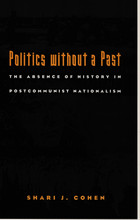
common characterizations of postcommunist politics as either a resurgence of
aggressive nationalism or an evolution toward Western-style democracy. Cohen
draws upon extensive field research to paint a picture of postcommunist
political life in which ideological labels are meaningless and exchangeable
at will, political parties appear and disappear regularly, and citizens
remain unengaged in the political process.
In contrast to the conventional wisdom, which locates the roots of widespread intranational strife in deeply rooted national identities from the past, Cohen argues that a profound ideological vacuum has fueled destructive tension throughout postcommunist Europe and the former Soviet Union. She uses Slovakia as a case study to reveal that communist regimes bequeathed an insidious form of historical amnesia to the majority of the political elite and the societies they govern. Slovakia was particularly vulnerable to communist intervention since its precommunist national consciousness was so weak and its only period of statehood prior to 1993 was as a Nazi puppet-state. To demonstrate her argument, Cohen focuses on Slovakia’s failure to forge a collective memory of the World War II experience. She shows how communist socialization prevented Slovaks from tying their individual family stories—of the Jewish deportations, of the anti-Nazi resistance, or of serving in the wartime government—to a larger historical narrative shared with others, leaving them bereft of historical or moral bearings.
Politics without a Past develops an analytical framework that will be important for future research in Eastern Europe, the former Soviet Union, and beyond. Scholars in political science, history, East European and post-Soviet studies will find Cohen’s methodology and conclusions enlightening. For policymakers, diplomats, and journalists who deal with the region, she offers valuable insights into the elusive nature of postcommunist societies.
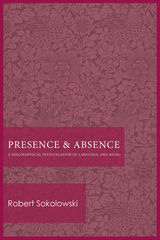
“A splendid, provocative and profound work, this book explores the manifold ways in which the contrast of presence and absence operate to establish the possibility of human discourse and truthfulness…belongs in every philosophy collection.” – Choice
“Quite simply a superb book, which deserves more than one careful reading. A fresh, unified treatment of a grand philosophical theme, the theme of the connections between thought, truth, and being.” – Man and World
“A thoughtful book about thoughtfulness and truthfulness and their ontological conditions. Simply put, this is a book that will reward its careful reader a hundredfold, for Sokolowski is a speaker who says things in ways that are provocative, exciting, and invariably insightful.” – Journal of the British Society for Phenomenology
“Has few peers in phenomenological literature.” – International Philosophical Quarterly
“[Sokolowski is] an original thinker of the first rank, who has significantly furthered the path of phenomenological philosophy. As well as being an exciting synthesis, a thinking of the previously unthought in predecessors, and a ground-breaking movement, this work is written with a sensitivity to language and its graceful use that one would hope for from one exploring its richness and power.” – Human Studies
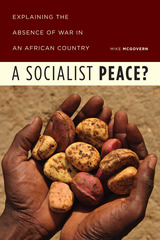
Guinea is rich in resources, but its people are some of the poorest in the world. Its political situation is polarized by fiercely competitive ethnic groups. Weapons flow freely through its lands and across its borders. And, finally, it is still recovering from the oppressive regime of Sékou Touré. McGovern argues that while Touré’s reign was hardly peaceful, it was successful—often through highly coercive and violent measures—at establishing a set of durable national dispositions, which have kept the nation at peace. Exploring the ambivalences of contemporary Guineans toward the afterlife of Touré’s reign as well as their abiding sense of socialist solidarity, McGovern sketches the paradoxes that undergird political stability.
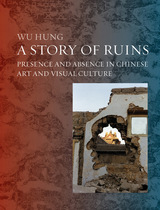
Wu Hung leads us through an array of traditional and contemporary visual materials, including painting, architecture, photography, prints, and cinema. A Story of Ruins shows how ruins are integral to traditional Chinese culture in both architecture and pictorial forms. It traces the changes in their representation over time, from indigenous methods of recording damage and decay in ancient China, to realistic images of architectural ruins in the nineteenth and twentieth centuries, to the strong interest in urban ruins in contemporary China, as shown in the many artworks that depict demolished houses and decaying industrial sites. The result is an original interpretation of the development of Chinese art, as well as a unique contribution to global art history.
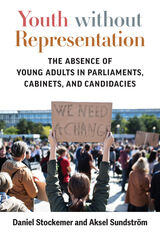
Officeholders in contemporary parliaments and cabinets are more likely than not to be male, wealthy, middle-aged or older, and from the dominant ethnicity, whereas young adults have an insufficient presence in political office. Young adults—those aged 35 years or under—comprise a mere ten percent of all parliamentarians globally, and three percent of all cabinet members. Compared to their presence in the world’s population, this age group faces an underrepresentation of one to three in parliament and one to ten in cabinet. In this book, Stockemer and Sundström provide a holistic account of youths’ marginalization in legislatures, cabinets, and candidacies for office through a comparative lens. They argue that youths’ underrepresentation in political office constitutes a democratic deficit and provide ample evidence for why they think that youth must be present in politics at much higher rates. They further embed this book within what they label a vicious cycle of political alienation, which involves the declining political sophistication of the young, their waning electoral participation, and their insufficient of representation in office. Empirically, the authors combine a global focus with in-depth studies, discussing the country-level, party-level, and individual-level factors that bar young adults’ entry to positions of political power. This is the first comprehensive book on youth representation and it has relevance for those broadly interested in issues of representation, democracy, inequality, and comparative politics.
READERS
Browse our collection.
PUBLISHERS
See BiblioVault's publisher services.
STUDENT SERVICES
Files for college accessibility offices.
UChicago Accessibility Resources
home | accessibility | search | about | contact us
BiblioVault ® 2001 - 2024
The University of Chicago Press









